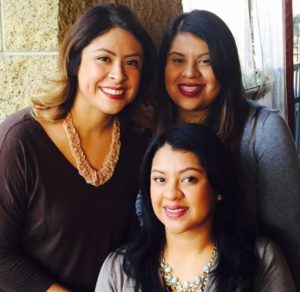Living in a patriarchal society makes it difficult for women to be independent or liberal of their own lives. We are set to act, dress, and work in a certain way. We the women in the family are the ones that are supposed to take care of the family and make sure to make food, care for our children and take care of the domestic work at home as well. In the article, “5 Ways Latinxs Can Challenge Machismo in Our Families and Communities” writer Jennifer Loubriel discusses how machismo is “dangerous” to our culture and especially in our families. She mentions, “As niñxs, we’re taught that machismo attitudes are “traditional” attitudes. As people of diaspora, we’re raised believing it connects us to our roots, protects our cultures, and reminds us of what family should be like.” As young Chicanas, we grow with a mentality of having to serve the family traditions and culture beliefs of a woman having to care for the family. In her poem, “Machismo is Part of Our Culture” Marcela Christine Lucero-Trujillo mentions machismo is a huge part of our culture. because it is the way family structures are imposed in many Chicana/o families. Similar to Lucero-Trujillo, Loubriel said machismo is a construct that is created around our culture. We have grown up to follow certain norms that have become a customs that seem to come natural in most of our lives. It is embedded within ourselves and sometimes we may not realize it.
Furthermore, Loubriel gives various examples that we “Latinxs” or Chicana should challenge machismo in our family by engaging with changing our attitudes with them. One of the ways that was very interesting to me of her challenging machismo is not expect our mothers to do everything for us. Our mothers are hard working women, they are “exhausted from constantly having to look after everyone” (Loubriel). Loubriel’s article reminded of how social activist women in the film A Crushing Love such as Dolores Huerta, Elizabeth “Betita“ Martinez, Cherrie Moraga, Alicia Escalante, and Marta Cotera demonstrate that women are capable of being advocates for their community while raising a family of their own. These women leaders do not follow the norm of being the ideal mother that stays home, cooks, and take care of their children; instead they break the stereotypes of women in Chicano patriarchal structure. They go against all the beliefs and structures that women in the Chicano culture have to follow. Many of theses women were judge because they did not fill the women expectation of being good mothers. Women have an exhausting gender role in our culture. As Loubriel mentions, various of way to combat that machismo altitude in our households by doing thing out of the ordinary like engaging with the family, not to depend on our mothers, stop others to defer us, speaking to other Latinas, and maintain conversations with people in our lives. We as Chicanas or Latinas have to learn how break gender roles by challenging them within our lives but also acknowledge the hard work we as women contribute everyday in society.
http://everydayfeminism.com/2015/11/how-challenge-machismo/

